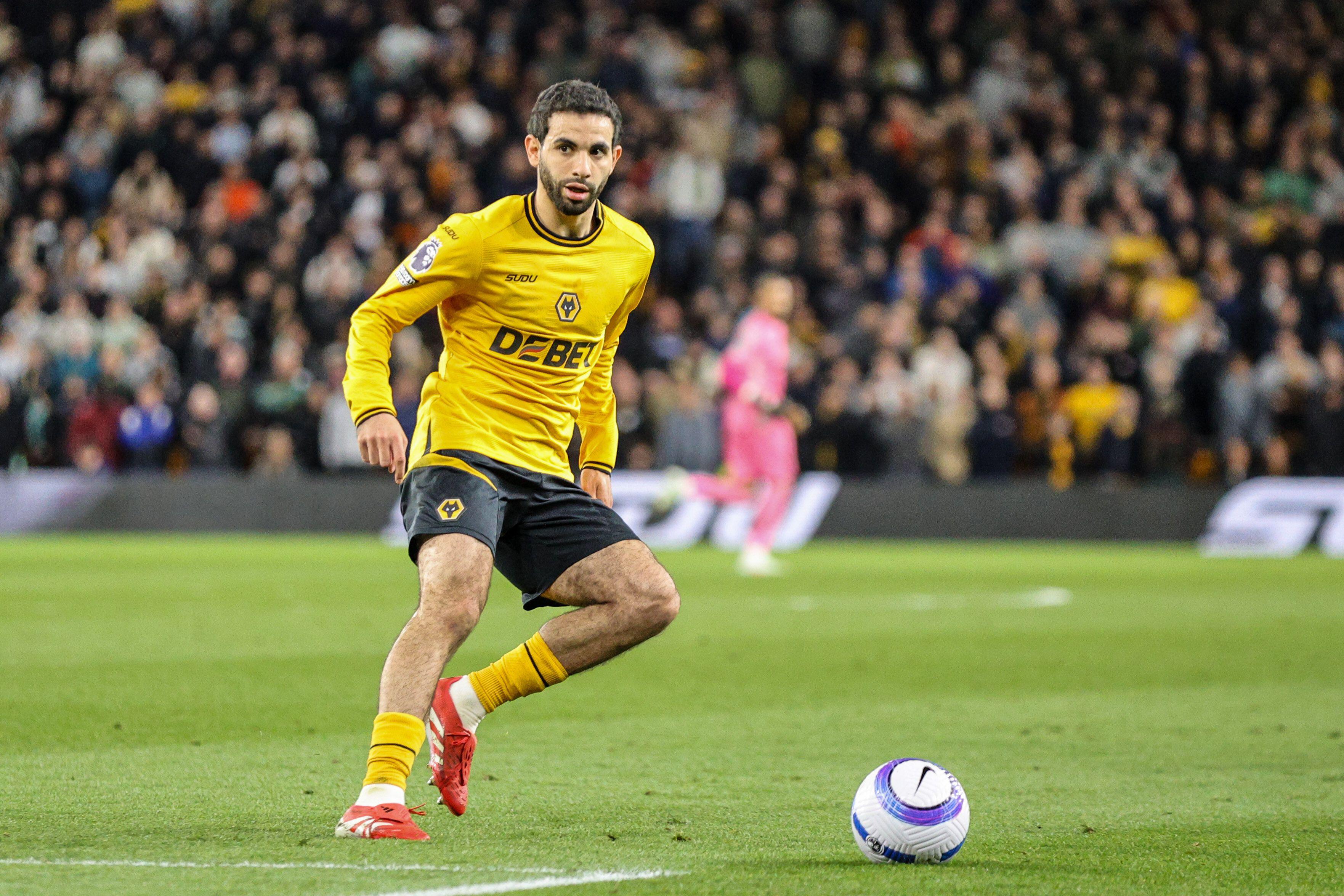Kagisho Dikgacoi on World Cup 2010: "Everyone went mad..."
The former Fulham midfielder and South African international tells FFT about playing in a home World Cup
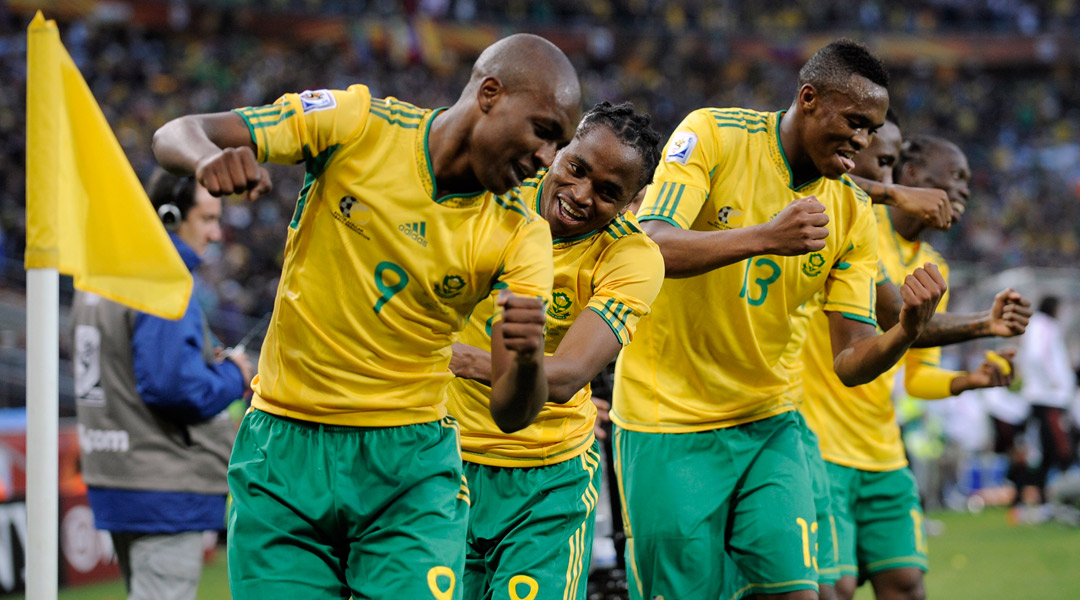
If Maradona’s fist symbolised Mexico 86 and Gazza’s tears Italia 90, future generations will no doubt remember the 2010 World Cup in South Africa for one thing, or rather, one sound: the deafening burr of the vuvuzela.
Branded “an instrument of hell” by one journalist, the two-foot-long plastic horn sounded like a goose’s honk in isolation and a swarm of bees when blown by thousands in a stadium. As a result, noise from the ubiquitous vuvuzela enthralled and appalled in equal measure on the pitch.
“Those trumpets?” remarked Spanish midfielder Xabi Alonso during the tournament. “That noise I don’t like.” “It is difficult for anyone on the pitch to concentrate,” complained Portugal’s Cristiano Ronaldo, whereas Patrice Evra blamed the instrument for keeping the French national squad awake in their hotel at night. Reports that it was in fact vuvuzelas that instigated Evra’s petulant, squad-wide revolt latterly in the tournament remain unconfirmed.
Not everybody despised them, however. “My kids have been on the phone… I’ve got two in my bag already,” beamed Jamie Carragher, with England’s omnipresent (and equally divisive) supporters’ band making it their personal mission to drown out the vuvuzela during the competition with their own brass racket.
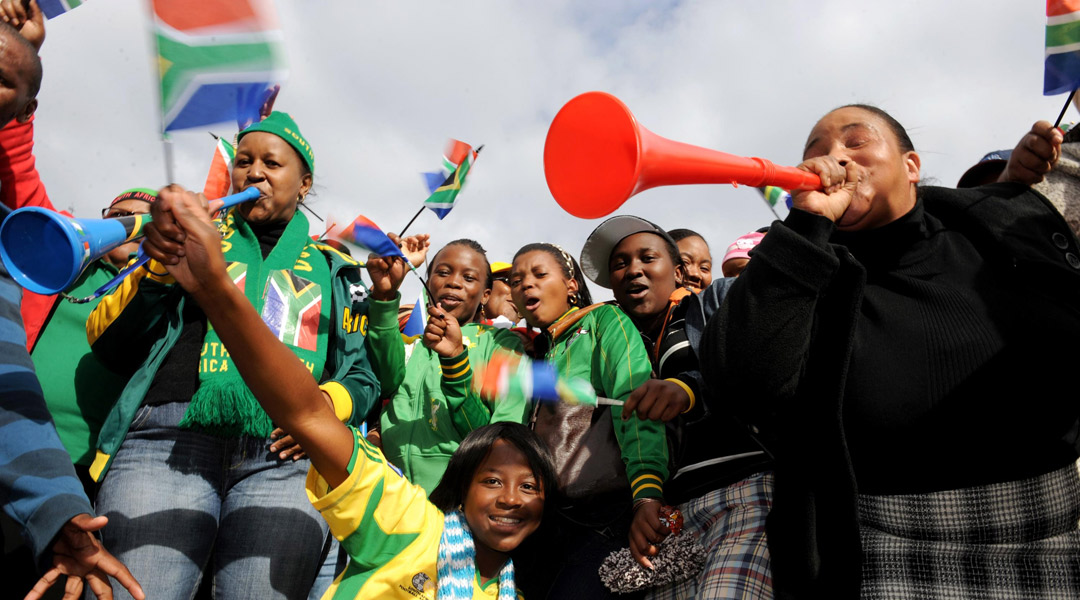
The iconic horn infuriated broadcasters too – who actually considered filtering out the ambient noise during matches – and though they were invented in South Africa, the horns soon infiltrated living rooms and pubs the world over. Four years on, the vuvuzela remains a perfect (if a tad annoying) symbol of Africa’s first World Cup. And for Bafana Bafana’s Kagisho Dikgacoi, its relentless parp was a sound of home.
“It’s our culture,” admits the 29-year-old Crystal Palace midfielder, whose first World Cup appearance just so happened to be on home soil. “It’s the way we support football in South Africa – fans cheer with a vuvuzela. It’s important for atmosphere.”
The mark of success
Get FourFourTwo Newsletter
The best features, fun and footballing quizzes, straight to your inbox every week.
It’s a mark of the success of Africa’s maiden World Cup that its largest problem was the mild irritation of stuffy television execs and whinging players. Judging by the pre-tournament press coverage, from when South Africa was awarded the competition in 2004 through to mere days before the opening game in Johannesburg’s Soccer City, there was widespread fear the stadia wouldn’t be ready on time and that travelling fans would be risking death merely by attending the tournament – to the extent that FIFA reportedly considered staging the World Cup elsewhere.
As it turned out, South Africa delivered a hyper-professional and impassioned carnival of colour – from the opening ceremony right up to Spain’s victory in the final – and never more so than in the tournament’s opening game between South Africa and Mexico.
“The atmosphere was incredible,” remembers Dikgacoi. “Aside from the fact it was played in South Africa, it was my first World Cup and it felt great.
“Getting to the game, it was emotional. The crowd, everyone was behind the squad, it was so exciting to be part of a team in the World Cup.”
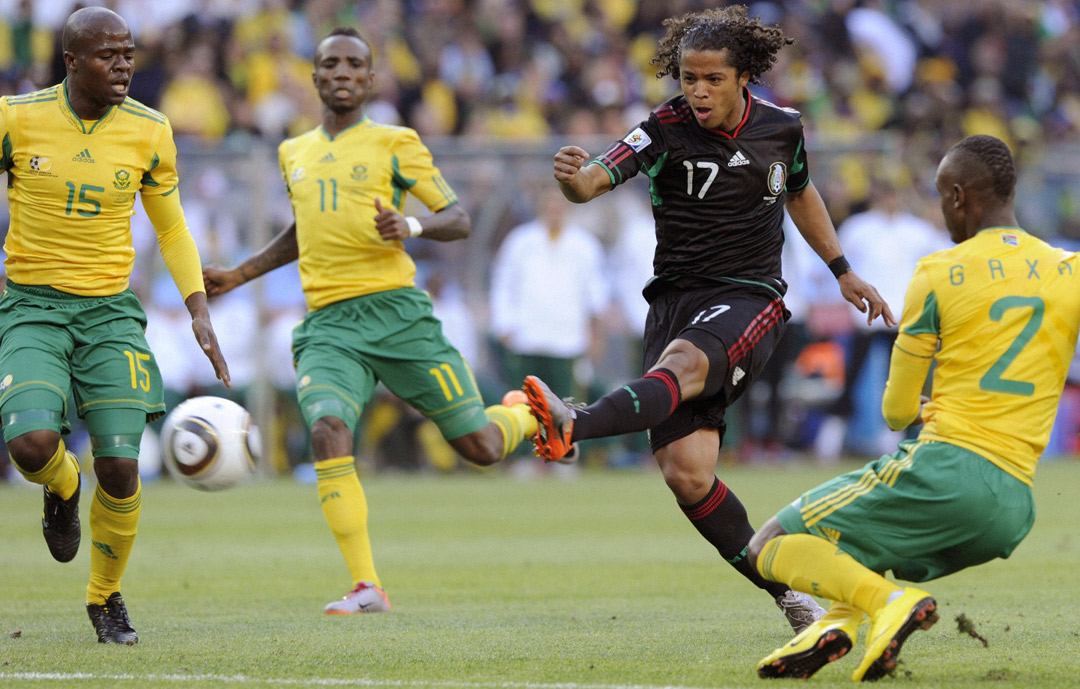
Buoyed by the fervent home support, the lowly-ranked hosts very nearly opened the tournament with a win against Mexico. Viewers will recall the thunderbolt strike by forward Siphiwe Tshabalala – and the resultant Roger Milla-esque dancing from the players – but it was a neat through ball from Kagisho Dikgacoi that started the move.
“I made an interception on the midfield and played a one-two,” remembers Dikgacoi, “and then I gave the pass to Tshabalala. After he finished the goal everyone went crazy.
“I think [the celebration] was planned by Tshabalala. They did it in one of the friendly games before the World Cup, so I had learned it from there. It was a good finish from him and everyone went mad."
Though the game finished 1-1 it very nearly ended in victory for South Africa, after Katiego Mphela hit the post late on. Regardless, the spirit of Africa was alive and well, and Dikgacoi believes the squad togetherness went beyond home support. With 1994 World Cup winning coach Carlos Alberto Parreira at the helm, in his second spell in charge, there was a new sense of optimism, belief and camaraderie amongst the team.
“We spent a lot of time with [Parreira] before we went to the World Cup, so it was great having him around and working with him,” says Dikgacoi of the Brazilian. “Parreira would allow us to see family and friends, he’d give us that time to relax ourselves – he wasn’t that strict. All together, we would go to the movies as a team. The atmosphere was incredible and the togetherness was there.”
“He would tell us why they always did well, the Brazilian team, and it was because he would give them time to refresh and spend some time with the family.”
"It was heartbreaking"
Sadly, despite the renewed team spirit, ravenous home support and an esteemed manager leading the charge, Parreira’s team weren't able to progress to the second round. After the 1-1 draw with Mexico and a 3-0 hammering by Uruguay, Bafana Bafana needed a win against the underwhelming French, along with a high-scoring victory for Uruguay against Mexico, to have any chance of qualifying. Either way, South Africa’s fate was out of Dikgacoi’s hands.
On the books of Fulham at the time, Dikgacoi had quickly earned a reputation in England as a hot-headed, combative midfielder – earning a red card for slapping West Ham’s Scott Parker a mere 41 minutes into his Fulham debut. It’s little wonder Dikgacoi drew comparisons to Roy Keane. This aggressive streak followed Dikgacoi into the tournament, with yellow cards in each of the first two games meaning he’d miss the crunch game against France.
“It was heartbreaking, especially as I was there at the game watching from the stands,” admits Dikgacoi. “I wished I could have been playing on that pitch, but when I looked around the stadium I could see the fans were excited to beat France.”
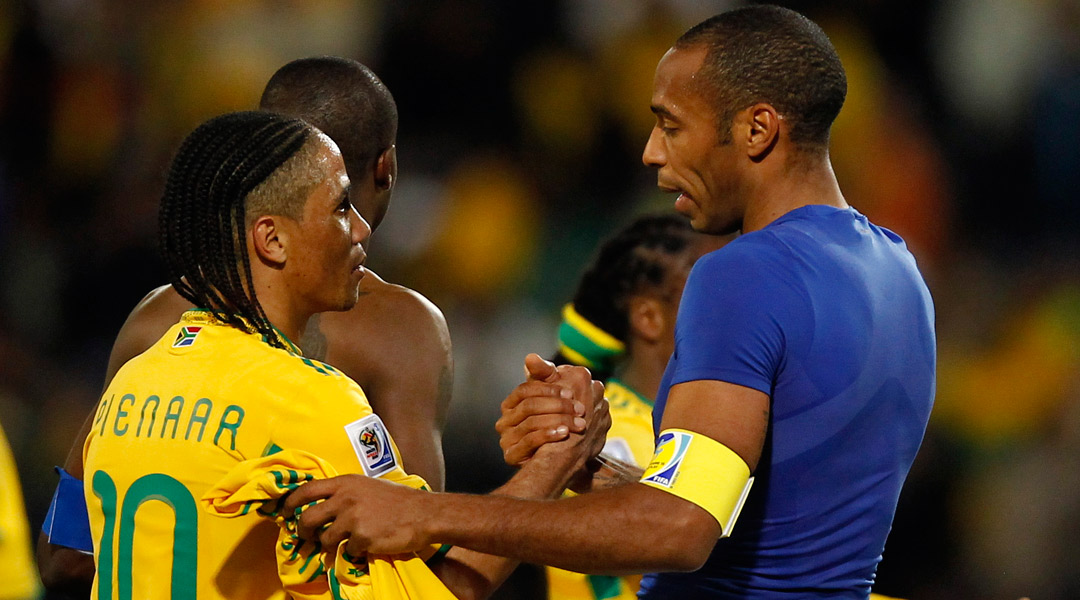
The game ended 2-1, but due to Uruguay only beating Mexico 1-0 South Africa became the first host nation in World Cup history not to progress to the next round. Agonisingly, it came down to goal difference.
“We drew, we lost and then we won – it wasn't a bad achievement in a World Cup, considering we had loads of players who didn’t have experience of international football,” says Dikgacoi.
No matter, Bafana Bafana bucked their pre-tournament expectation of being knocked out without a whimper, and both the historic victory against France and Tshabalala’s screamer against Mexico live long in the memory. In a heartening show of solidarity, most South Africa fans transferred their support to nearby Ghana. For Dikgacoi however, who stuck around after the hosts' elimination, his heart was with a team from his new home continent of Europe. England, surely?
“To be honest, I was supporting Spain,” smiles Dikgacoi. “The best team won, I think they deserved it.”
